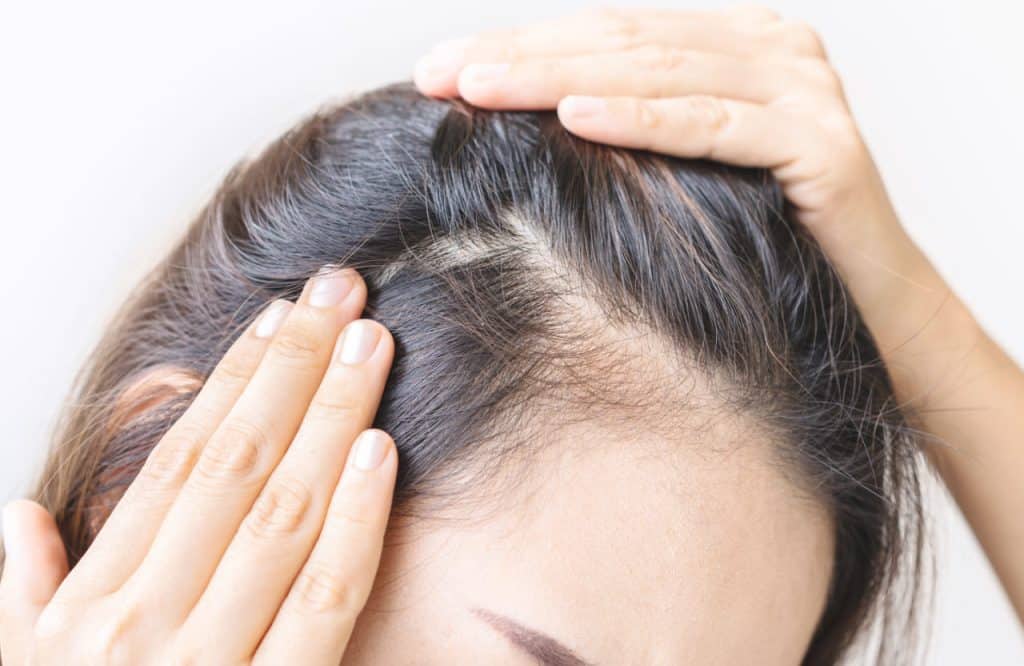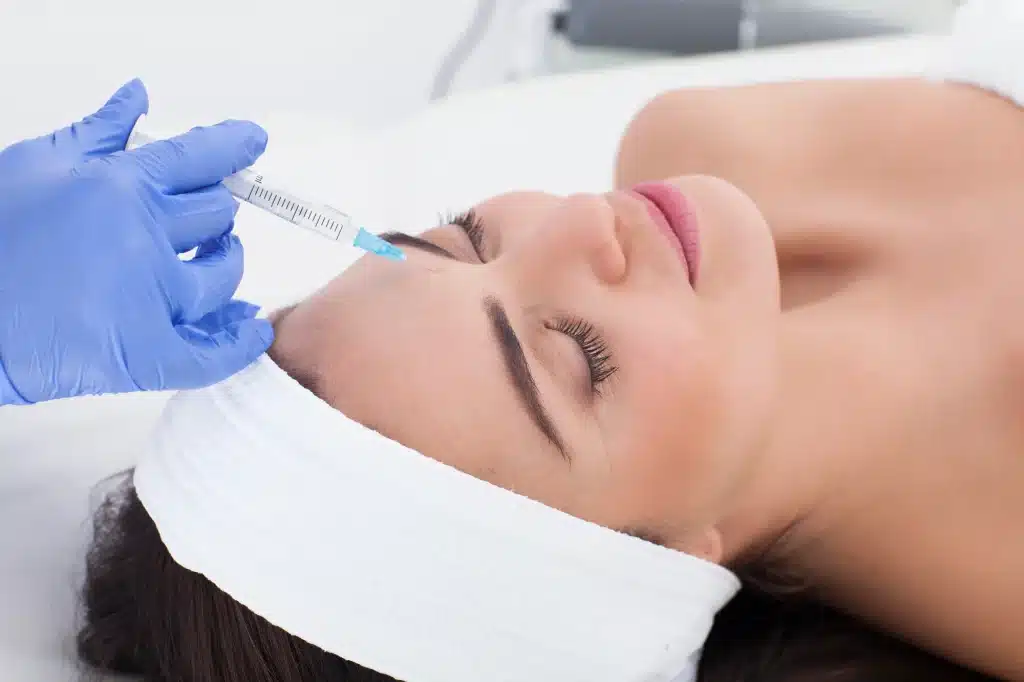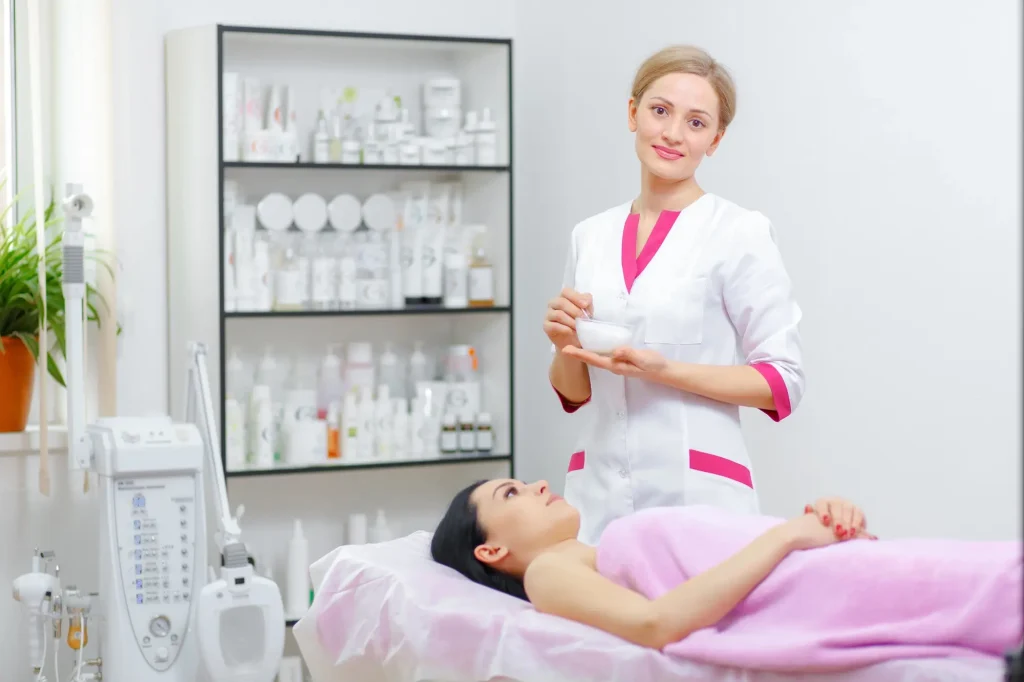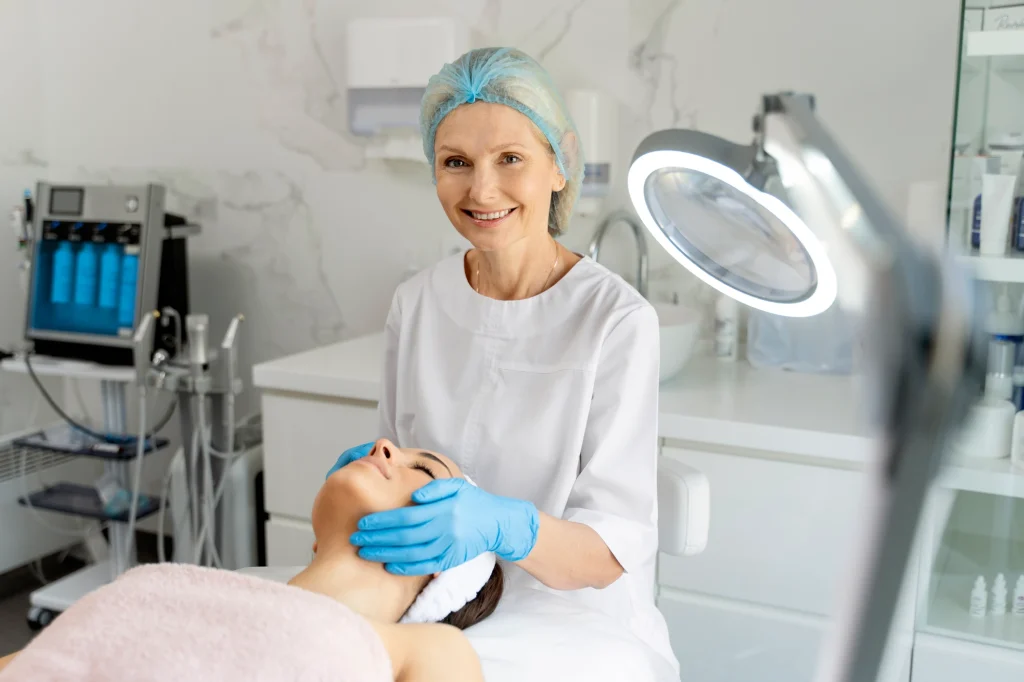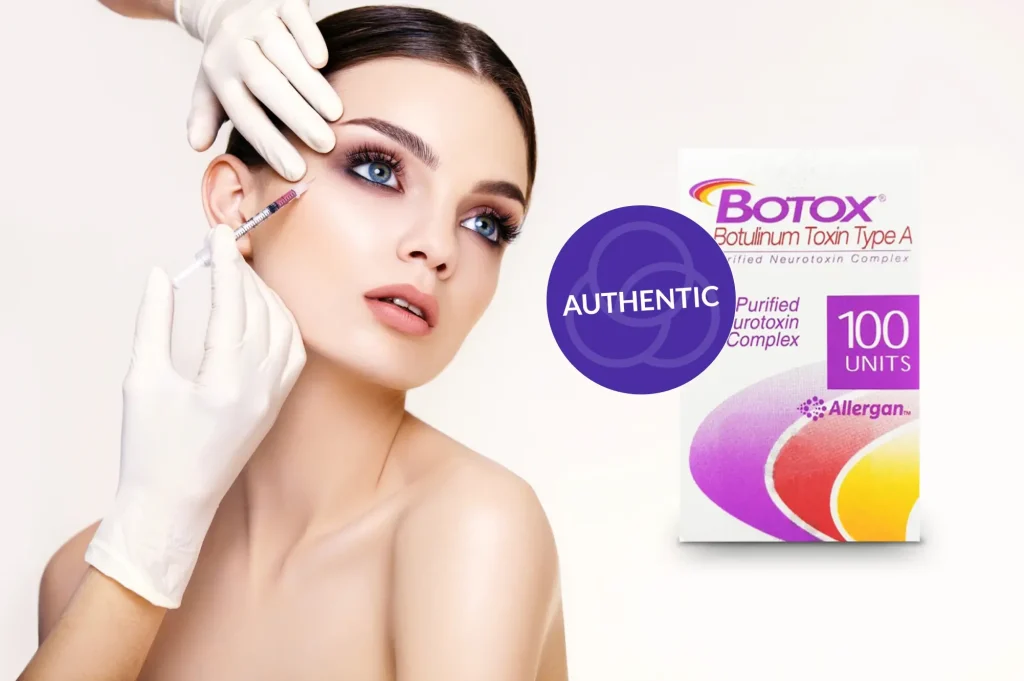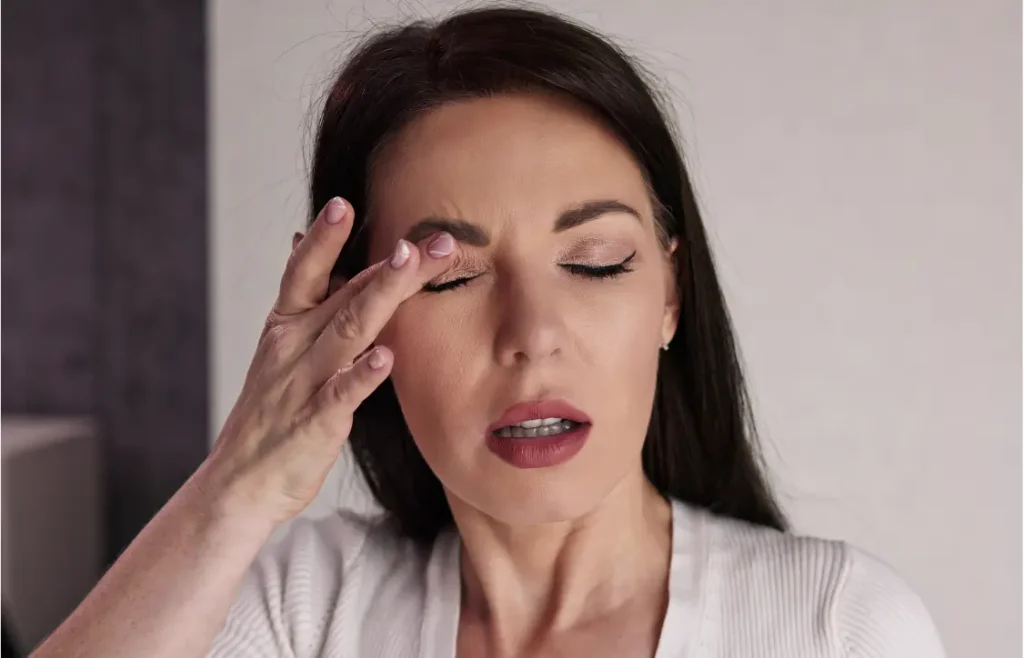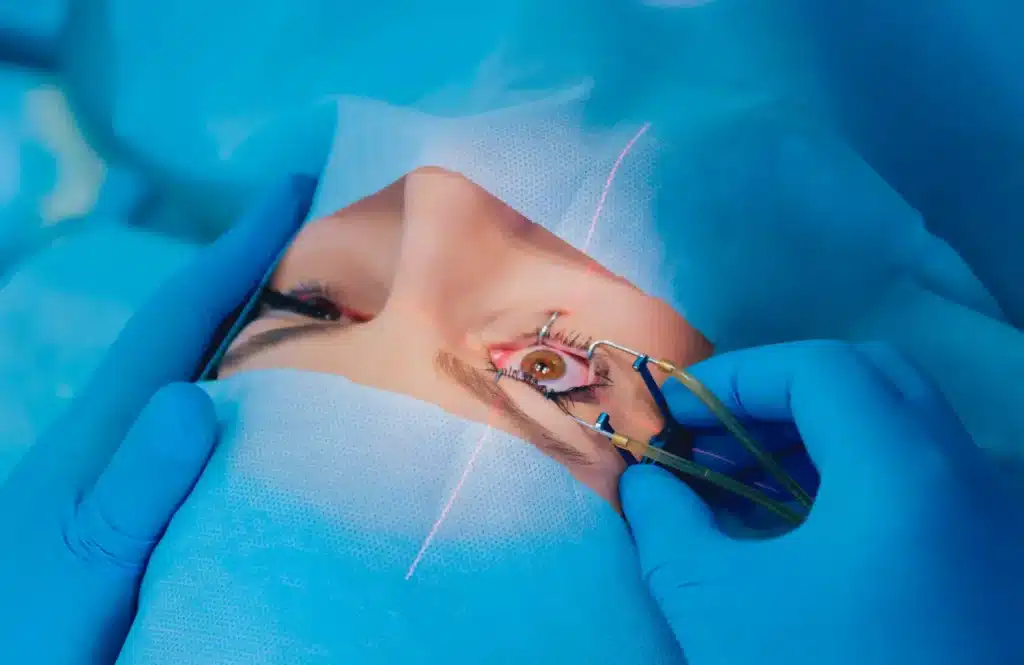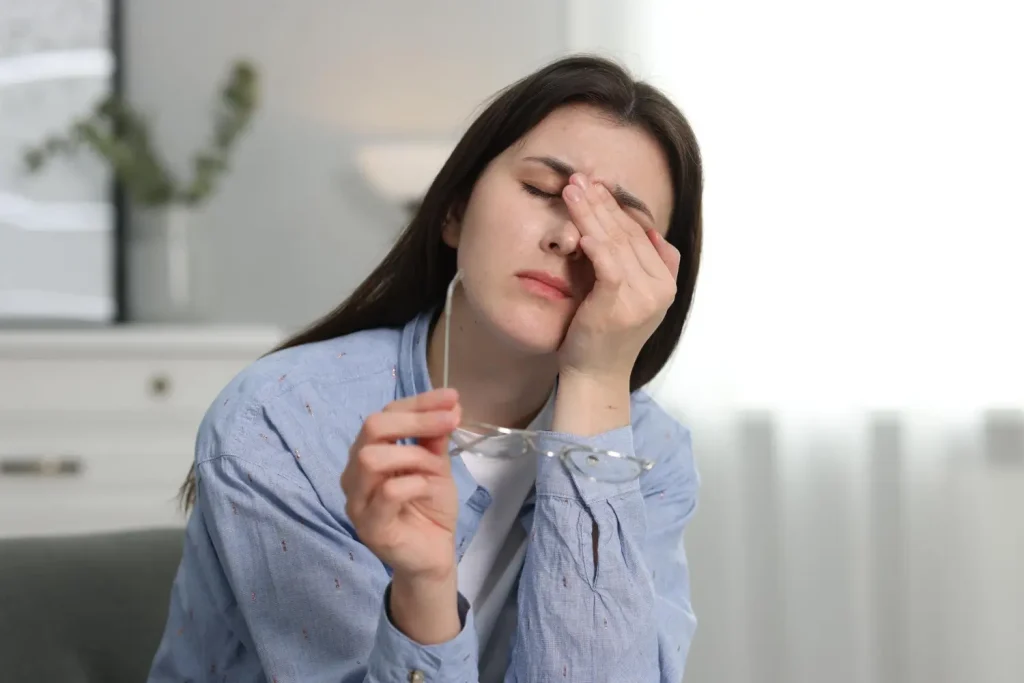Peptides are, in simple words, a building material for the body; they participate in the regulation of various physiological processes. For example, they signal the skin to produce collagen, elastin, and hyaluronic acid.
The body produces the necessary peptides on its own, but this process slows down with age (starting as early as 25 to 30). Therefore, to “force” the skin to implement the desired program (produce proteins necessary for elasticity, start regeneration processes, increase local immunity, and relax muscles), cosmetics were created with appropriate types of peptides for hair.
The Problem of Hair Loss
Hair loss and the following alopecia are caused by a number of factors, both endogenous and external. Therefore, the approach to therapy should be comprehensive to cover all links and stages of hair growth.
Steps for managing alopecia and persistent hair thinning include:
- Careful collection of anamnesis, including morbi: when the first symptoms appeared, what was associated with them, what treatment was used, etc.;
- Diagnostics in the trichologist’s office: trichoscopy, visual inspection with identification of lesions, phototrichogram;
- Additional diagnostic methods: blood biochemistry, exclusion of concomitant internal pathologies, based on the collected history;
- Determination of the diagnosis, protocol of procedures, and recommendations for home care.
Local therapy and work with the scalp is an essential step in the protocol for correcting hair loss of any origin, excluding scarring. Mesotherapy, PRP therapy, and scalp revitalization are considered leading treatment methods that provide visible results. The protocols are often based on peptide preparations – mesococktails, hair fillers with peptides for hair growth, and their combinations, along with other techniques to intensify the effects.
A competent blend of procedures and course correction will help accelerate the onset of the result of internal therapy and positively influence all stages of hair growth.
How Do Trichological Peptides Work?
Peptides are short chains of amino acids, the building blocks of proteins, and they play essential roles in various physiological processes in the body, including tissue repair, cellular signaling, and regulation of growth factors. Several types of peptides have been investigated for their effects on hair follicles and hair growth.
Peptides can be found in various hair growth products, such as shampoos, conditioners, serums, topical creams, and hair fillers with peptides (injections for hair growth). However, not all peptides are created equal. Some of them are more effective than others, and some peptides may not be effective at all.
The list of the peptides that demonstrated to have certain results in promoting hair growth includes the following:
- Arginine is an amino acid essential for hair growth and can help stimulate the production of new hair follicles.
- Copper peptides for hair growth (particularly GHK-Cu) contain copper, an essential mineral for hair growth. They stimulate blood flow to the scalp, increase collagen and elastin production (the proteins that give hair strength and elasticity), and, most importantly, block the DHT hormone that impedes hair growth.
- Growth factors, such as IGF-1 and FGF-7, promote cell division and growth and can also help protect hair follicles from damage. The body naturally produces growth factors, but their production can decline with age. Topical application or injections with growth factors can help to replenish these levels and stimulate hair growth.
- Keratin peptides help to strengthen hair and make it less likely to break or fall out.
Hair peptides can be applied topically or as injections to the scalp or taken orally. There are many hair growth products that contain peptides, and some of these products have been shown to be effective in clinical trials.
BCN Capillum Peptides is a popular hair care product that consists of a blend of copper peptides, growth factors, and keratin peptides. This sterile solution is applied to the scalp by a doctor. It is designed to be used in conjunction with microneedling, mesotherapy to stimulate hair growth or other products such as Stylage.
BCN Capillum Peptides has shown effectiveness in stimulating hair growth for people with androgenic alopecia (male pattern baldness) and alopecia areata (patchy hair loss). But it is essential to note that this is a prescription medication, which should only be used under the supervision of a doctor.
The course of procedures involving hair growth peptides depends on the severity of the clinical case, concomitant endogenous diseases, and the patient’s pain threshold. When working with poly-component mesococktails, a short-term burning sensation may be felt during the injections, unlike with hair fillers, which do not cause discomfort during injection.
Benefits and Side Effects of Peptides for Hair Growth
Some of the advantages of using peptides for hair growth include the following:
- Stimulation of hair growth;
- Reduced inflammation;
- Increased blood flow to the scalp;
- Strengthening of the existing hair follicles;
- Reparation of damaged hair.
However, when using peptides, some side effects may also occur. They are usually mild and resolve very quickly, but are still worth mentioning:
- Redness, irritation, or itching of the scalp;
- Dryness of the scalp;
- Allergic reactions;
- Hair growth in unwanted areas.
Conclusion
While there is still ongoing research on the specific effects of peptides on hair growth, there is evidence to suggest that certain peptide-based formulations, such as those used in topical hair products or scalp treatments, for example, BCN Capillum Peptides, may have a positive impact on the look and health of the treated hair.
It is essential to remember that the effectiveness of peptide-based products can vary based on the specific peptides used, their concentration, and overall formulation.
FAQ
Do peptides help hair growth?
Peptides can mimic the effects of hormones and other proteins involved in hair growth. When peptides are applied to the scalp, they might stimulate the growth of hair follicles by:
- Increasing blood flow to the scalp;
- Reducing inflammation;
- Promoting the production of new hair follicles;
- Strengthening the existing hair follicles.
What peptides block DHT?
Hormone Dihydrotestosterone (DHT) is derived from testosterone and is a major contributor to androgenetic alopecia (pattern hair loss), particularly in individuals genetically predisposed to this condition. Blocking the excessive production or activity of DHT is a key approach to preventing hair loss.
While several peptides and compounds have been studied for their potential to inhibit DHT, it’s important to note that the effectiveness of these peptides for hair loss prevention and their mechanisms of action may vary. Here are a few peptides that have been explored for their potential to block DHT or mitigate its effects:
- Copper Peptides are a combination of copper ions and small protein fragments. They have been studied for their potential to stimulate hair growth and inhibit the action of the enzyme 5-alpha reductase. The 5-alpha reductase is responsible for converting testosterone to DHT in hair follicles.
- Thymosin beta-4 is a peptide studied for its regenerative properties, including its potential to promote hair growth. While the exact mechanisms of action of these peptides for hair are still being investigated, some studies suggest that they may have a role in mitigating hair loss factors, including DHT.
- Palmitoyl Pentapeptide-4, often referred to as Matrixyl, is used widely in skincare products due to its anti-aging effects. It has been suggested that Palmitoyl Pentapeptide-4 may have a role in inhibiting 5-alpha reductase, the enzyme responsible for converting testosterone to DHT.
- Lysine-Threonine-Threonine-Lysine-Serine (KTTKS) is a peptide sequence investigated for its potential to inhibit the enzyme 5-alpha reductase. By blocking this enzyme, KTTKS may help reduce the conversion of testosterone to Dihydrotestosterone in hair follicles.
Does copper peptide regrow hair?
Copper is a vital trace element playing a role in various physiological processes, such as wound healing, collagen production, and anti-oxidant defense. Copper peptides have for many years been believed to influence cell proliferation and inflammation, as well the extra-cellular matrix, all relevant factors for hair follicle health and growth.
Copper peptides can be utilized to produce hair re-growth in the following ways:
- Promoting a proliferation of cells within hair follicles, leading to increased hair growth.
- The anti-inflammatory properties copper peptides have, help create a healthier scalp environment for hair follicles to thrive in.
- Enhancement of amount blood circulation.
References
Lee WJ, Sim HB, Jang YH, Lee SJ, Kim DW, Yim SH. Efficacy of a complex of 5-Aminolevulinic acid and Glycyl-Histidyl-Lysine peptide on hair growth. Annals of Dermatology. 2016;28(4):438.
Hwang SB, Park HJ, Lee BH. Hair-Growth-Promoting effects of the fish collagen peptide in human dermal papilla cells and C57BL/6 mice modulating WNT/Β-Catenin and BMP signaling pathways. International Journal of Molecular Sciences. 2022;23(19):11904.
Park SY, Lee J. Modulation of hair growth promoting effect by natural products. Pharmaceutics. 2021;13(12):2163.
Ahn DH, Kim H, Lee B, Hahm DH. Psychological Stress-Induced Pathogenesis of alopecia areata: autoimmune and apoptotic pathways. International Journal of Molecular Sciences. 2023;24(14):11711.
Katzer T, Leite ACJ, Beck RCR, Da Silva C. Physiopathology and current treatments of androgenetic alopecia: Going beyond androgens and anti‐androgens. Dermatologic Therapy. 2019;32(5).
